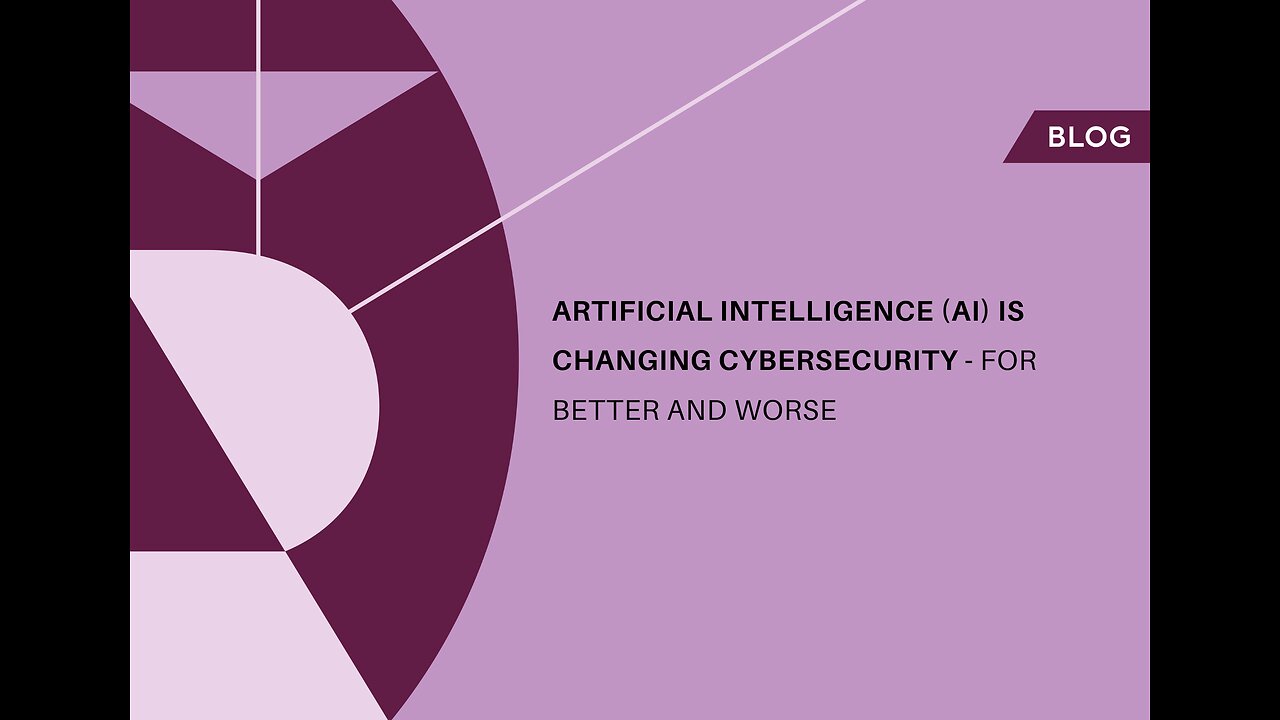Premium Only Content

How AI is fundamentally altering the business landscape - VentureBeat
🥇 Bonuses, Promotions, and the Best Online Casino Reviews you can trust: https://bit.ly/BigFunCasinoGame
How AI is fundamentally altering the business landscape - VentureBeat
July 30, 2023 8:20 AM Image Credit: VentureBeat made with Midjourney Head over to our on-demand library to view sessions from VB Transform 2023. Register Here Over the past year, we’ve witnessed dramatic strides in AI development and huge shifts in public perceptions of the technology. Chatbots like OpenAI’s ChatGPT and LLMs like GPT-4 have demonstrated remarkable abilities to communicate fluently and perform at or near the highest level on a broad range of cognitive assessments. Companies that are integral to the AI ecosystem (like Nvidia) have seen their market caps soar. Talk of an AI arms race among tech giants like Google and Microsoft is ubiquitous. Despite all the excitement surrounding AI, there has been no shortage of consternation — from concerns about job displacement, the spread of disinformation, and AI-powered cyberattacks all the way to fears of existential risk. Although it’s essential to test and deploy AI responsibly, it’s unlikely that we will see significant regulatory changes within the next year (which will widen the gap between leaders and followers in the field). Large, data-rich AI leaders will likely see massive benefits while competitors that fall behind on the technology — or companies that provide products and services that are under threat from AI — are at risk of losing substantial value. There will be winners and losers in the AI race, but AI pessimists are discounting the creativity and productivity that the technology will unleash. Yes, job losses are inevitable, but so are job gains. The most successful companies won’t fight the tide of change — they will figure out how to take part in one of the greatest technological revolutions we have ever witnessed. Innovation will counteract dislocation There’s no doubt that AI will replace many roles that exist today — data entry clerks, content creators, paralegals, customer service agents and millions of other workers may discover that their careers are about to take an unexpected turn. Accenture expects 40% of all working hours to be affected by LLMs alone, as “language tasks account for 62% of the total time employees work.” The World Economic Forum’s 2023 Future of Jobs Report projects that the proportion of tasks done by machines will jump from 34% to 43% by 2027. Event VB Transform 2023 On-Demand Did you miss a session from VB Transform 2023? Register to access the on-demand library for all of our featured sessions. Register Now That said, it’s always wise to bet on human creativity and resilience. As some roles become redundant, there will be increased demand for AI auditors and ethicists, prompt engineers, information security analysts, and so on. There will also be surging demand for educational resources focused on AI. PwC reports that a remarkable 74% of workers say they’re “ready to learn a new skill or completely retrain to keep themselves employable” — an encouraging sign that employees recognize the importance of adapting to new technological and economic realities. Perhaps this is why 73% of American workers believe technology will improve their job prospects. Companies should take advantage of these sentiments by focusing on talent mobility and professional development, which will simultaneously prepare their workforces for the AI era and improve retention in a stubbornly tight labor market. Beyond internal training, we’re seeing the emergence of third-party educational services focused on AI, data science, cybersecurity and many other forward-looking subjects – a trend that will likely pick up momentum in the coming years. Amid all the dire headlines about AI-fueled job losses, it’s important to remember how adaptable human beings can be. Managing AI risk will be a core priority On top of the economic shocks that will be caused by AI, the technology poses many other dangers that companies and consumers will need to account for in the coming years. AI-powered cyberattacks, problems with bias and transparency, copyright infringement, and the large-scale production of inaccurate information are all risks that are becoming increasingly urgent. The ways we manage these risks will have sweeping implications for the deployment and adoption of AI in the coming years. Take the potential role of AI in cyberattacks. According to Verizon’s 2023 Data Br...
-
 LIVE
LIVE
Drew Hernandez
9 hours agoTRUMP SECURES SETTING MEET BETWEEN PUTIN & ZELENSKYY
701 watching -
 LIVE
LIVE
SpartakusLIVE
5 hours agoSpartan HERO here to MOTIVATE the MASSES
353 watching -
 1:27:19
1:27:19
Badlands Media
17 hours agoCulture of Change Ep. 117: DARPA, Downloads & the Roots of the Narrative
33.4K1 -
 LIVE
LIVE
BubbaSZN
13 hours ago🔴 LIVE - MAFIATHON (COMPLETING THE MAFIA SERIES WITHOUT ENDING STREAM)
37 watching -
 2:50:02
2:50:02
TimcastIRL
4 hours agoTrump Calls Putin During Zelenskyy White House Visit, European Leaders Praise Trump | Timcast IRL
149K53 -
 1:54:34
1:54:34
FreshandFit
9 hours agoBrandon Carter Returns
30K3 -
 LIVE
LIVE
MissesMaam
9 hours agoResident Evil 4 *FIRST EVER PLAYTHROUGH*💚✨
292 watching -
 LIVE
LIVE
SlingerGames
2 hours agoSlinger Slays Elden Ring - Pt. 8 - Enduring the Pain
24 watching -
 LIVE
LIVE
VapinGamers
3 hours ago $0.07 earnedOff The Grid - Co-Stream with BSparksGaming! Come Join the Mayhem! - !rumbot !music
25 watching -
 1:36:53
1:36:53
Glenn Greenwald
6 hours agoTrump Tries to End War in Ukraine; U.S. is Dangerously Low on Weapons and Munitions Former Trump DoD Official Warns | SYSTEM UPDATE #502
85.7K40